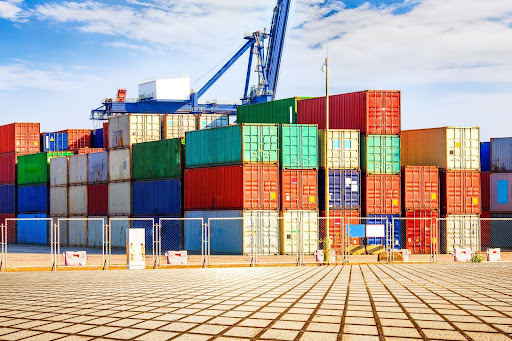Are you thinking about buying a shipping container? If so, it’s a very smart move—shipping containers can be used for many purposes. Be it a tiny home project, business inventory, storage, or shipping, containers are versatile, durable, and cost-effective solutions that can be adapted to your various needs. However, when it comes to buying a shipping container, many people make mistakes by rushing into the purchase without understanding what to look for.
There are some factors you must know before you buy a shipping container. This will help you make the right purchase that will meet your needs, fit your budget, and avoid costly mistakes.
You Should Know the Purpose Behind Buying a Container
Before you purchase, you should be very clear about the purpose for which you’ll use a container. This might sound obvious, but it’s actually really important. For example, are you using it for storage? Do you need to build a small office or a tiny home? Do you need it to store seasonal items? Or do you need to ship goods across the ocean? Each use has different needs. For example—if you’re storing tools, you might not need a container in perfect condition. But if you’re turning it into a workspace, you’ll need one that’s clean, rust-free, and maybe even new.
If you’re clear about your purpose, it will be easier for you to choose the right type and condition.
Knowing the Sizes of the Container
Shipping containers come in two sizes—20-foot and 40-foot. 20ft containers are great for small storage or tight spaces. On the other hand, 40 ft containers offer double the space and are better for large projects or storing big equipment. There are also high-cube containers, which are best for storing items large in height.
Now, you need to determine which size is best suited for your needs.
A tip for you: Always measure your space before making a purchase. It’s because delivery trucks need enough room to maneuver and drop the container safely.
New or Used? Decide Between These Two
Both new and used containers are available from container-providing companies. New containers are brand-new and have been used once to ship goods. They’re usually in great shape—clean, dent-free, and with solid doors and floors. On the other hand, used containers have been used for various times, due to which they may have dents, rust, or signs of wear, but they’re more affordable.
Used containers are perfect for simple storage. New containers are better for homes, offices, or anything people will be spending time in.
Ask yourself a few questions:
Do I need it to look good? Does it need to be weatherproof? Am I okay with a few flaws to save money?
Once you’re clear with these questions, it will be easy for you to decide between new and used containers.
Inspect the Container’s Condition
Would you buy a car or any other vehicle without looking at it first, such as its features, design, and overall condition? Probably Not. The same logic applies when purchasing a shipping container. If possible, inspect the container’s condition in person. Here are a few things you need to look for:
- Rust—especially on the roof and corners
- Holes or cracks—go inside and check for light coming through any point
- Door and Locks—check whether the doors open and close smoothly and whether the locks are sturdy or not.
Buying online and can’t inspect the container? Here’s another option for you—ask the retailer or manufacturer for recent pictures and a detailed condition report. If you’re buying a used container, ask for the complete history of the container, including how many times it has been used and for what type of cargo.
Note: If the seller is reputable and trusted, they should not have a problem with providing this information upfront.
Don’t Forget About Delivery
Many people don’t think about delivery until it’s time to receive the container. Shipping containers are big and heavy, so you’ll need a flatbed truck or a tilt-bed truck to deliver them. There are some cases when you’ll also need space for the truck to park around or behind.
Some reputable companies offer delivery and placement services.
It’s best to contact companies that provide high-quality shipping containers for sale and deliver them direct to your location.
Check Your Local Rules and Permits
Some cities and towns have zoning laws or permit requirements for the use of shipping containers. It’s necessary first to check with your local municipality, zoning office, or homeowners association to find out what’s allowed in your area.
Final Thoughts
Finally, investing in a shipping container can be a smart, cost-effective solution—but only if you know what to look for before making a purchase. Take your time to consider your purpose, the right size, new vs. used condition, delivery logistics, inspection, and local regulations.
Remember, a little preparation now can save you time, money, and headaches later.



